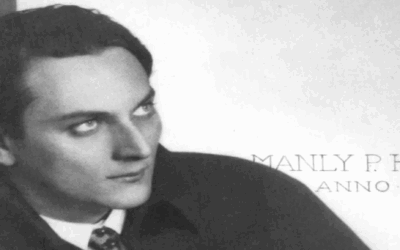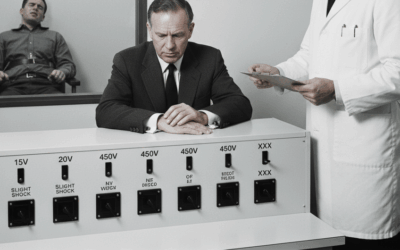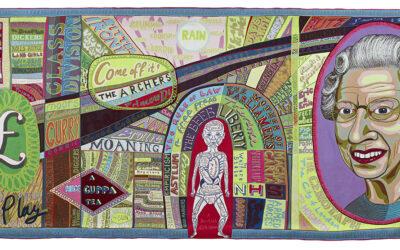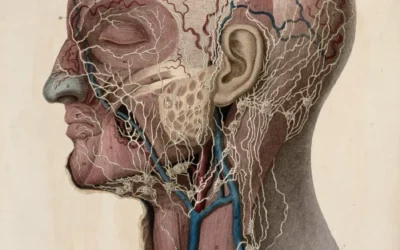Examining the Implied Assumptions in Different Therapy Modalities

When we think of therapy, we often associate it with self-improvement and positive change. After all, isn’t the goal of therapy to help us become better versions of ourselves? But does therapy inherently make us more moral? The answer may not be so straightforward. In fact, different therapy approaches make various assumptions about morality and what it means to have a healthy sense of self.
What is Morality?
Before diving into how therapy approaches morality, let’s define what we mean by the term. Morality generally refers to the principles of right and wrong behavior. It’s concerned with the “goodness” or “badness” of human character and conduct.
However, morality is often measured against societal norms – what most people in a given culture agree is right or ethical. These norms can shift over time as society changes. For example, until 1974, homosexuality was considered not only immoral but a mental disorder according to the DSM. It took the advocacy of many therapists to reframe this as a normal and healthy expression of human sexuality.
Moral certainty is prerequisite fanaticism, but moral clarity a neccesity to ethical practice. In other words when we are certain we are right we make ethical mistakes but that does not mean that we should not try to have a consistentcy in our ethical system. While we should rely on moral norms to an extent, we must also be open to re-examining them when needed for the betterment of individuals and society.
Morality Through the Lens of Different Therapy Approaches
So how do various therapy styles approach the concept of morality and the self? Let’s take a closer look at a few key modalities:
Psychoanalysis
Traditional Freudian psychoanalysis emerged in part as a reaction against the repressive Victorian era, which pathologized open discussion of topics like sexuality and violence. Freud saw human nature as inherently driven by primal instincts – the “id” – which needed to be tempered by the “superego,” or conscience.
In this view, uncovering and working through unconscious conflicts is key to developing a healthy, moral self. But critics argue Freud’s theories can be overly deterministic, implying we are all at the mercy of unconscious forces with limited free will to choose ethical conduct.
Jungian Psychology
Jungian psychology takes a more nuanced view of morality and the self. According to Jung, we all have a “shadow” side – the parts of ourselves we hide and deny. Only by facing and integrating our shadow can we make truly ethical decisions. This requires humility, empathy, and tolerating ambiguity.
Jung believed that while social conditioning and religious codes provide an initial moral framework, as we individuate, we must develop our own ethical codes in alignment with the authentic Self. This means that morality is not fixed, but evolves as our consciousness expands. The goal is wholeness, not perfection.
However, Jung’s emphasis on relativity and individual experience has drawn criticism. Some argue it can lead to moral solipsism if not balanced with concern for collective welfare. There’s also a risk of grandiosity in assuming we can access higher wisdom without checks and balances.
Cognitive-Behavioral Therapy (CBT)
CBT takes a more pragmatic approach, focusing on aligning thoughts and behaviors with reality and rationality. While it may not explicitly discuss morality, CBT does aim to foster healthier cognitions and actions, which could be seen as a path to a more authentic, ethically-grounded self.
The goal is to challenge distorted thoughts and maladaptive behaviors in order to improve wellbeing and functioning. CBT assumes that by thinking and acting more rationally, we will naturally make better moral choices. There is an implication that “right thinking” leads to “right action.”
However, some argue CBT lacks a deeper engagement with existential issues of meaning and values that inform our moral compasses. It may help with immediate problems, but doesn’t necessarily cultivate lasting ethical maturity.
Internal Family Systems (IFS)
IFS views the self as composed of various “parts” or sub-personalities. In this model, the core Self possesses inherent wisdom and compassion. Therapy involves getting the different parts into harmonious alignment so this authentic Self can emerge.
By tapping into the Self, IFS assumes we access an innate moral clarity and goodness. The Self is seen as the ultimate seat of healthy decision-making. As we unblend from reactive parts, we naturally act with more integrity.
While an elegant theory, questions remain about what exactly this core Self entails and how it develops. Is it a transcendent essence or a psychological metaphor? Can traumatized individuals fully embody Self leadership? There are still gaps in understanding the Self’s real-world ethical capacity.
Existential Therapy
Existential therapy grapples head-on with issues of meaning, responsibility, and values. In this view, we must each forge our own moral path in a fundamentally absurd universe. Ethical living involves facing reality, owning our choices, and creating purpose.
Existential therapists vary in their definitions of ethical behavior, but most emphasize authenticity, personal responsibility, and creating meaning. The assumption is that by courageously engaging with existential givens, we develop the integrity to make tough moral choices.
However, this individualistic approach to ethics has drawn criticism. Some argue it neglects the role of relationships, community, and cultural context in shaping our morality. While personal authenticity is important, it must be balanced with concern for others’ welfare.
Dialectical Behavior Therapy (DBT)
DBT, a modified form of CBT, was developed to treat borderline personality disorder and other conditions involving emotional dysregulation. It balances acceptance of reality with commitment to change. By building distress tolerance and emotional regulation skills, DBT aims to help individuals act less impulsively and more deliberately.
There is an implication in DBT that by gaining control over our emotions and behaviors, we can make more rational, ethical choices. The ability to pause, reflect, and respond thoughtfully is seen as key to moral decision-making. DBT assumes that stronger emotional regulation and interpersonal skills will naturally lead to more ethical conduct.
Detractors argue DBT’s focus on managing symptoms doesn’t address underlying developmental or attachment wounds that shape moral capacity. It provides coping techniques, but may not transform one’s fundamental relationship to self and world in the way that ethical maturity demands.
Somatic Experiencing
Somatic Experiencing is a body-oriented approach that views trauma as stemming from incomplete physiological responses to threat. By attuning to physical sensations, it aims to release stuck survival energy and restore nervous system regulation.
The assumption is that by healing trauma’s physiological imprint, we naturally develop greater emotional and behavioral control. This regulation is seen as necessary for acting with integrity rather than reactivity. A settled nervous system provides the groundwork for clearer moral reasoning.
But while somatic regulation is important, does it automatically lead to ethical behavior? Somatic Experiencing must be careful not to equate bodily groundedness with mature morality. Explicit ethical education may still be needed. The risk is a kind of moral bypassing – presuming embodiment equals enlightenment.
Lifespan Integration
Lifespan Integration is a gentle, body-based therapeutic method that aims to heal without re-traumatizing. Using a timeline of memories, it integrates past experiences into a more coherent, emotionally-regulated autobiographical narrative.
As clients make new connections between past and present, their sense of self becomes more continuous and secure. Lifespan Integration assumes that healing splits in the self caused by trauma naturally builds the foundation for wiser, more ethical choosing. By recontextualizing memories, it aims to expand perspective-taking – a key moral capacity.
But does achieving a coherent life narrative automatically create moral discernment? Lifespan Integration focuses on healing trauma, but may need to explicitly engage with moral development to fulfill its ethical potential. More research is needed on its long-term impact on moral functioning.
Process-Oriented Therapy
Process-Oriented Therapy (also known as Process Work) is a depth psychology approach that views disturbances as potentially meaningful signals from the unconscious. It works with body experiences, dreams, relationship conflicts, and social issues as gateways to inner growth and outer change.
The assumption is that by unfolding the wisdom in disturbances, we access our deepest life purposes and values. Ethical living means aligning with our unique “mythic thread” or calling. Integrity stems from embracing, rather than marginalizing, all parts of ourselves and the world.
However, Process Work’s emphasis on finding meaning in obstacles can veer into romanticizing suffering. Therapists must be careful not to minimize real oppression or excuse unethical behavior as necessary for growth. Explicit ethical reflection is needed to ground the mythic in the moral.
Voice Dialogue
Voice Dialogue is a therapeutic approach that explores the various sub-personalities or “selves” that shape our thoughts, feelings, and behaviors. By giving voice to these inner selves and facilitating dialogue between them, it aims to foster self-understanding and integration.
The assumption is that as we embrace all our inner voices, we develop the ability to make more choiceful, values-based decisions. No longer unconsciously driven by conflicting selves, we can consciously harness their gifts in service of the whole. Ethical maturity involves negotiating between multiple stakeholders within.
But does simply exploring different selves lead to moral clarity? Critics argue that Voice Dialogue, if not grounded in overarching ethical principles, can devolve into moral relativism. Clear values and accountable choosing are needed to ensure that embracing inner diversity leads to outer integrity.
Somatic Archaeology
Somatic Archaeology is a therapeutic approach that combines touch, movement, and imagery to access early pre-verbal memories held in the body. By working somatically with developmental trauma, it aims to renegotiate interrupted self-organizing processes and promote psychological birth.
The assumption is that undigested primitive experience interferes with emotional and moral development. By uncoupling early overwhelming events from the central nervous system, adult ethical functioning can come online. Somatic Archaeology sees embodied self-regulation as crucial for values-aligned living.
However, there is a risk of determinism in views early experience as rigidly shaping morality. Even with somatic healing, deliberate character cultivation may be needed. Somatic Archaeology is a nascent field requiring further research to substantiate its impact on moral behavior.
Acceptance and Commitment Therapy (ACT)
ACT is a behavioral approach that encourages accepting internal experience while committing to valued action. Using mindfulness and values clarification, it aims to build psychological flexibility – the ability to contact the present moment and act in service of chosen values.
The assumption is that by accepting painful thoughts and feelings, we can still act with integrity. Values provide the moral northstar that guides behavior even amidst distress. ACT assumes ethical living stems from embodying values, not eliminating discomfort.
But what guides the selection of values in the first place? ACT must be careful not to equate any freely chosen values with ethical ones. Philosophical and developmental psychology perspectives may be needed to inform mature values discernment as a basis for committed action.
Motivational Interviewing (MI)
MI is a client-centered approach that elicits intrinsic motivation for positive change. Through empathic, non-judgmental dialogue, it guides people to articulate their own reasons, ability, and readiness for adopting healthier behaviors.
The assumption is that lasting change arises from within, not from external pressure. By evoking people’s innate wisdom and agency in an atmosphere of acceptance, MI aligns with the ethical principle of autonomy. It trusts that when empowered to listen to their deepest selves, people naturally orient towards prosocial values.
However, MI’s emphasis on personal choice must be balanced with considering the impact of choices on others. Explicit discussion of ethics and social responsibility may be needed to ensure autonomy is exercised with integrity. MI can elicit intrinsic values, but those values still require scrutiny.
Interpersonal Neurobiology (IPNB)
IPNB is an interdisciplinary framework that explores the ways relationships and the brain interact to shape mind and morality. Drawing on attachment theory, it sees attuned, caring relationships as the crucible of not only psychological but also moral development.
The assumption is that our ability to act with empathy and attunement – the foundation of ethics – is rooted in our early experiences of being empathized with and attuned to by caregivers. Moral behavior relies on the neural circuitry of mindsight – the ability to understand the mental states of self and other – that is formed in secure attachment bonds.
However, IPNB must be cautious about reducing morality to biology alone. While neural integration enables moral behavior, it doesn’t dictate the specific content of moral norms, which emerge from culture and philosophy. Embodied ethical know-how still requires the guidance of ethical knowledge.
The Sopranos: A Cautionary Tale?
The hit TV show The Sopranos provides an interesting case study in therapy and morality gone awry. Mob boss Tony Soprano starts seeing a therapist, Dr. Melfi, for panic attacks. While therapy helps Tony gain more control over his anxiety, it also seems to make him a more effective sociopath in some ways.
By providing a space for Tony to process his emotions and examine his motivations, therapy ironically enables him to compartmentalize his violent criminal life from his personal life more effectively. He uses therapeutic concepts to rationalize his actions and even becomes more manipulative.
Dr. Melfi herself gets drawn into an ambiguous, codependent dynamic with Tony that pushes ethical boundaries at times. She has to grapple with the moral weight of potentially improving the mental health of someone who causes tremendous harm to others.
The show raises provocative questions about therapist blind spots, the risk of patients misusing therapy insights for unethical ends, and the need for therapists to be vigilant about their own moral clarity and professional boundaries.
Therapy Ethics of the Future
In the end, therapy is a tool – and like any tool, it can be used constructively or destructively. Different therapy approaches make varying assumptions about what constitutes a moral, healthy self. But they all rely on both the therapist and patient engaging with the process with honesty, integrity, and a desire for positive change.
As The Sopranos illustrates, therapy in the wrong hands can lead down some murky ethical paths. Therapists must be vigilant about their own blind spots and maintain strong personal and professional boundaries. They must balance being non-judgmental with upholding fundamental ethics to avoid enabling destructive behaviors.
At the same time, patients are responsible for how they use therapy insights. Cultivating true moral clarity and character requires ongoing introspection, openness to challenging old patterns, and a willingness to consider the greater good – not just one’s own self-interest.
Therapy can be a profound catalyst for growth and change. But it’s up to both therapist and patient to ensure that change is ultimately a turn toward greater integrity, authenticity, and yes – morality. They must approach the endeavor with humility, curiosity, and a willingness to question assumptions. Only then can therapy fulfill its true potential to heal, awaken, and transform.
Bibliography
Arendt, H. (1963). Eichmann in Jerusalem: A Report on the Banality of Evil. Viking Press.
Becker, E. (1973). The Denial of Death. Free Press.
Buber, M. (1923). I and Thou. Charles Scribner’s Sons.
Bugental, J. F. T. (1981). The Search for Authenticity: An Existential-Analytic Approach to Psychotherapy. Irvington.
Casement, P. (2014). Learning from Life: Becoming a Psychoanalyst. Routledge.
Freud, S. (1923). The Ego and the Id. W.W. Norton & Company.
Gilligan, C. (1982). In a Different Voice: Psychological Theory and Women’s Development. Harvard University Press.
Hare, R. D. (1999). Without Conscience: The Disturbing World of the Psychopaths Among Us. Guilford Press.
Heidegger, M. (1927). Being and Time. SCM Press.
Jung, C. G. (1921). Psychological Types. Princeton University Press.
Kohlberg, L. (1981). Essays on Moral Development: The Philosophy of Moral Development (Vol. 1). Harper & Row.
Levinas, E. (1961). Totality and Infinity: An Essay on Exteriority. Duquesne University Press.
MacIntyre, A. (1981). After Virtue: A Study in Moral Theory. University of Notre Dame Press.
Miller, A. (1979). The Drama of the Gifted Child: The Search for the True Self. Basic Books.
Nietzsche, F. (1886). Beyond Good and Evil: Prelude to a Philosophy of the Future. Vintage Books.
Rogers, C. R. (1961). On Becoming a Person: A Therapist’s View of Psychotherapy. Houghton Mifflin.
Schwartz, R. C. (1995). Internal Family Systems Therapy. Guilford Press.
Siegel, D. J. (1999). The Developing Mind: How Relationships and the Brain Interact to Shape Who We Are. Guilford Press.
Yalom, I. D. (1980). Existential Psychotherapy. Basic Books.
Further Reading
Psychoanalysis and Morality
- Marcus, P. (2003). Being for the Other: Emmanuel Levinas, Ethical Living and Psychoanalysis. Marquette University Press.
- Meissner, W. W. (1986). Psychoanalysis and Religious Experience. Yale University Press.
- Rangell, L. (1976). “Psychoanalysis and the Process of Moral Judgment.” The Annual of Psychoanalysis, 4, 3-27.
- Wallwork, E. (1991). Psychoanalysis and Ethics. Yale University Press.
Jungian Psychology and Morality
- Beebe, J. (2004). Integrity in Depth. Texas A&M University Press.
- Neumann, E. (1969). Depth Psychology and a New Ethic. Harper & Row.
- Samuels, A. (1989). The Plural Psyche: Personality, Morality and The Father. Routledge.
- Stein, M. (1998). Jung’s Map of the Soul: An Introduction. Open Court.
Cognitive-Behavioral Therapy and Morality
- Flanagan, O. (1991). Varieties of Moral Personality: Ethics and Psychological Realism. Harvard University Press.
- Martin, J., & Sugarman, J. H. (2000). “Between the Modern and the Postmodern: The Possibility of Self and Progressive Understanding in Psychology.” American Psychologist, 55(4), 397-406.
- Rector, N. A., Bagby, R. M., Segal, Z. V., Joffe, R. T., & Levitt, A. (2000). “Self-Criticism and Dependency in Depressed Patients Treated with Cognitive Therapy or Pharmacotherapy.” Cognitive Therapy and Research, 24(5), 571-584.
- Tjeltveit, A. C. (1999). Ethics and Values in Psychotherapy. Routledge.
Internal Family Systems and Morality
- Earley, J. (2009). Self-Therapy: A Step-By-Step Guide to Creating Wholeness and Healing Your Inner Child Using IFS, A New, Cutting-Edge Psychotherapy (2nd ed.). Pattern System Books.
- Schwartz, R. C. (2001). Introduction to the Internal Family Systems Model. Trailheads Publications.
- Sweezy, M., & Ziskind, E. L. (Eds.). (2013). Internal Family Systems Therapy: New Dimensions. Routledge.
Existential Therapy and Morality
- Camus, A. (1942). The Stranger. Vintage International.
- Frankl, V. E. (1946). Man’s Search for Meaning. Washington Square Press.
- May, R. (1983). The Discovery of Being: Writings in Existential Psychology. W. W. Norton & Company.
- Sartre, J.-P. (1943). Being and Nothingness: A Phenomenological Essay on Ontology. Washington Square Press.
Dialectical Behavior Therapy and Morality
- Holmes, P. E., Georgescu, S., & Liles, W. (2006). “Further Delineating the Applicability of Acceptance and Change to Private Responses: The Example of Dialectical Behavior Therapy.” The Behavior Analyst Today, 7(3), 301-311.
- Linehan, M. M. (1993). Cognitive-Behavioral Treatment of Borderline Personality Disorder. Guilford Press.
- Lynch, T. R., Chapman, A. L., Rosenthal, M. Z., Kuo, J. R., & Linehan, M. M. (2006). “Mechanisms of Change in Dialectical Behavior Therapy: Theoretical and Empirical Observations.” Journal of Clinical Psychology, 62(4), 459-480.
- Swales, M. A., & Heard, H. L. (2009). Dialectical Behaviour Therapy: Distinctive Features. Routledge.


























0 Comments